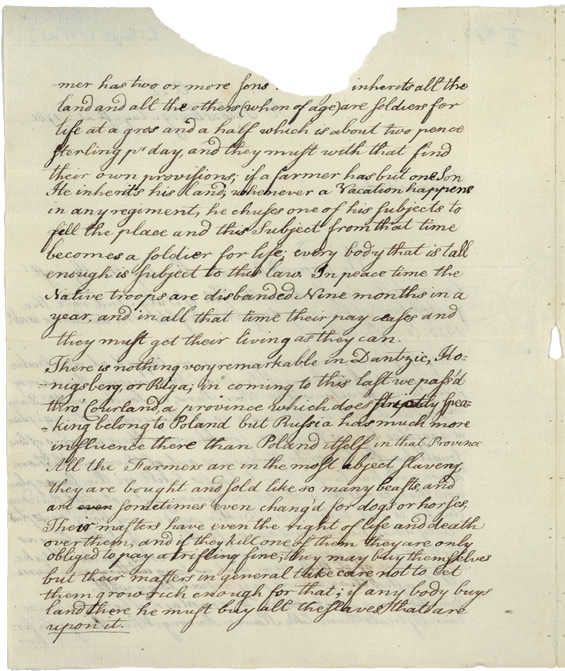has two or more
sons the eldest inherits all the land and all the others (when of age) are
soldiers for life at a gros and a half which is about two pence sterling
per day, and they must with that find their own provisions; if a farmer
has but one Son He inherits his land; whenever a Vacation happens in any
regiment, he chuses one of his subjects to fill the place and this subject
from that time becomes a soldier for life; every body that is tall enough
is subject to this law. In
peace time the Native troops are disbanded Nine months in a year, and in
all that time their pay ceases and they must get their living as they can.
There
is nothing very remarkable in Dantzic, Konigsberg, or Riga; in coming to
this last we pass'd thro' Courland, a province which does strictly speaking
belong to Poland but Russia has much more influence there than Poland itself
in that Province. All the Farmers are in the most abject slavery,
they are bought and sold like so many beasts, and are sometimes even chang'd
for dogs or horses. Their masters have even the right of life and death
over them, and if they kill one of them they are only obliged to pay a trifling
fine; they may buy themselves but their masters in general take care not
to let them grow rich enough for that; if any body buys land there he must
buy all the slaves that are upon it.
Adams,
John Quincy. Letter to John Adams, August 21, 1781 O.S. / [September 1,
1781 N.S.]. Adams Family Papers, Massachusetts Historical Society. Published
in Adams Family Correspondence, Volume 4: October 1780 - September 1782
(Cambridge: The Belknap Press of Harvard University Press, 1973). Pages
206-207.



